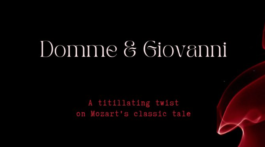Forgetting a famous actor’s name or misplacing car keys is commonplace in our busy lives, but a temporary blanking-out can rattle people who fear the slippery slope of memory loss. A recent survey of 1,007 adults by Harris Interactive for the MetLife Foundation found that American adults fear getting Alzheimer’s disease almost as much as receiving a cancer diagnosis. The survey reported that 41% of people fear cancer, closely followed by Alzheimer’s disease at 31%. At the same time, incidents of Alzheimer’s are expected to rise as the Baby Boomers retire. Both of which make the work of an organization like Artists for Alzheimer’s (ARTZ) so vital in our community.
ARTZ is bringing people with Alzheimer’s and dementia out of the shadows through local art and cultural events that make the community more accessible for them. “The best form of treatment is being involved in society,” said Sean Caulfield, ARTZ’s co-founder and creative director.
“It’s more effective if people with dementia are not segregated from everyone else because of their illness. We make accommodations for the disabled, the blind and deaf…memory loss is the same thing.”
While facilitating more cultural experiences for those with dementia, ARTZ is also opening the eyes of people without memory issues, who are also encouraged to participate in ARTZ events. The goal is for the community to see how people living with the disease aren’t the stereotype of the Alzheimer’s patient sitting in the corner drooling. ARTZ is changing this fear narrative to show that living with memory loss, while presenting some challenges, does not fundamentally alter who we are.
Caulfield described a recent ARTZ event at the International Museum of Contemporary Art in Boston. A young docent was observing the group as they toured the museum and discussed the artwork. Afterward, she approached Caulfield and said, “Thank you for doing what you do. It was an eye-opener.”
“She saw people with unique takes on the work, giving their opinions, laughing.” Caulfield recalled.
One unique ARTZ program, It Takes a Village, is funded by the Brookline Community Foundation and integrates local businesses and municipalities into events for people with dementia and their caretakers. Outings have included a tour of the John F. Kennedy Birthplace, Yoga at Inner Space, and social mixers at the Larz Anderson Auto Museum.
“Brookline is the first place in the country to do It Takes a Village,” said Caulfield. “The Brookline Community Foundation helped make it happen.” Nearby towns like Roxbury and Watertown, as well as cities like Seattle, Philadelphia, and Cincinnati are also looking into the program.
At ARTZ events people with memory loss leave their dementia at the door. One example is the ARTZ-sponsored program at the Coolidge Corner Theatre, “Meet Me at the Coolidge…and Make Memories“. This free cinematic experience is designed to provoke thoughts and reactions that occur to participants in the moment. No one is asked what year a film was made or what he/she first thought of a classic movie when it was released decades ago. A new clip from a famous movie is presented and the audience immediately starts talking about it. According to Caulfield, the recurring event has attracted close to 4,000 people over the last four years.
ARTZ was founded in 2002 as an initiative of the I’m Still Here Foundation. In 2006 they partnered with The Museum of Modern Art in New York City, the first museum to institute programs for people with dementia. In 2007, the Louvre in Paris started similar bi-weekly programming which is still running today.
Volunteers are asked to give one hour of their time per year to help a person with memory loss. It doesn’t sound like much, but as Caulfield explained, “When you ask someone to volunteer for you they worry, what if I can’t fulfill the commitment? But if you’re only asking for an hour a year, people think, I can do that. It’s one hour anytime during the year. If the person volunteers for one hour and wants to do more, they can simply contact ARTZ and let them know.” But it’s not mandatory. “Even those who volunteer for an hour can become ambassadors for people with memory loss because they’ve seen for themselves what these people are capable of.”
ARTZ members believe that people with memory loss can’t put their life on hold waiting for a cure. While it’s true that there is steady funding for Alzheimer’s research, it may be years before a cure is found. In the meantime, Caulfield points out, friends of his who have early-onset dementia, those in their 60’s and 70’s, need to learn how to live well with the disease.
“People with memory loss need to have a healthy perspective, “said Caulfield, “They can have a great quality of life…they can still be creative, travel, play tennis.
“We have made strides in accepting diseases like Cancer and Diabetes as chronic illnesses we must live with. Dementia is no different.”
To volunteer an hour a year or to donate to Artists with Alzheimer’s and the I’m Still Here Foundation, please visit www.artistsforalzheimers.org/Donate.html
-By Jennifer Campaniolo










